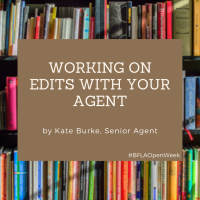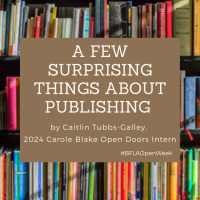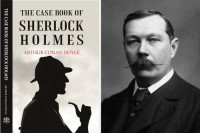
Why so few men take up the pen
thecritic.co.uk – Sunday July 14, 2024

With publishing now such a female-dominated industry, it’s no surprise that there are so few men writing fiction
I’ve just finished a very unusual book: Caledonian Road by Andrew O’Hagan. Its themes, characters and the author’s style of writing are all exceptionally good but that’s not why this book is unusual. It’s more because it’s a new and critically acclaimed work of literary fiction written by a man.
If you’ve seen the inside of any bookshop in the last few years, you’ll know how rare this has become. The vast majority of new fiction and its most praised and promoted authors are female. And yet the principal reason for this is seldom discussed.
So let’s discuss it, shall we? Let’s bring the elephant into the room. The publishing industry is suffering from a damaging gender imbalance. According to a recent UK publishers’ survey, 83 per cent of marketing, 92 per cent of publicity and 78 per cent of editorial staff in Britain’s publishing industry are female. Taking an average of those three figures suggests an industry whose employees are 84 per cent female.

Writing Suspenseful Scenes: Techniques for Keeping Readers on the Edge of Their Seats
rollingstone.com – Saturday July 13, 2024

IN THE REALM of literature, few elements captivate readers quite like a masterfully crafted suspenseful scene. It’s the literary equivalent of a roller coaster ride — heart-pounding, palm-sweating and utterly addictive. But what techniques do authors employ to create these nail-biting moments that keep readers glued to the page? Let’s delve into the world of literary suspense and uncover the secrets behind keeping readers on the edge of their seats.
At its core, suspense is about the art of withholding information. Like a skilled magician, authors must constantly misdirect, hint and tease. The real magic happens in the reader’s mind as they attempt to piece together the puzzle. Pacing plays a crucial role in this dance between revelation and concealment. The key is to provide just enough information to keep readers hooked, but not so much that they can predict what’s coming next.
One technique that many suspense writers swear by is the slow burn. This involves gradually increasing tension throughout a scene or chapter, ratcheting up the stakes bit by bit until the reader is practically squirming with anticipation. Think of it as slowly turning up the heat on a pot of water. You start with a simmer, then gradually increase the temperature. By the time you reach the boiling point, the reader is fully invested and desperate to know what happens next.

BFLA Open Week: Working on Edits with Your Agent
blakefriedmann.co.uk – Thursday July 11, 2024

Every agent – and agency – is different and, ultimately, who you sign with has to be someone you click on a personal and professional level, and who you think will do the best by your writing and your career. Some agents work very closely editorially with clients and some don’t, but I’m not here to judge anyone! All I can say is that, as a former editor with a decade of experience working for several publishers, I do a lot of editorial work with my clients, particularly with debut writers, but this process can continue beyond that. This means working closely with them on several drafts of their novels before submitting them to publishers, helping them to shape outlines for future projects as well as brainstorming titles and pitch lines, and these are processes I really enjoy!

BFLA Open Week: A Few Surprising Things About Publishing
blakefriedmann.co.uk – Tuesday July 9, 2024

On my first day interning at Blake Friedmann, I realised just how much I didn’t know about the publishing industry. Over just two weeks, I learnt so much. It was life-changing – to my career in publishing, and to my confidence as a young professional. The Carole Blake Open Doors Project sets a major example for the rest of the industry as does Blake Friedmann as an agency themselves. The internship was proactive, inclusive, exciting, and impressively tailored to my interests. I could probably talk about it all day, but instead I’d like to share a few things I learnt that may be helpful to writers and aspiring publishing professionals alike.

"It Shouldn't Be Printed At All. It Should Be Burnt" — 23 Books Writers Regret Writing
buzzfeed.com – Sunday July 7, 2024

We've recently written about inventors who regretted their inventions, as well as directors who cringed at (and even disowned) their own movies. So, we thought we'd share some examples of authors who grew to regret their own titles, too. Here are 23 examples:
1. Arthur Conan Doyle grew to hate Sherlock Holmes, eventually killing his beloved character off.
Historian Lucy Worsley told The Guardian that Sherlock eventually just became a cash cow for Doyle, who also wrote far-less-read historical novels. He killed off Holmes when he made him enough money, but brought him back ten years later for over a million dollars — "he would have hated the fact that today, 93 years after his death, his historical novels lie unread, while his ‘cheap’ – but beloved – detective lives forever on our screens," Worsley says.

Super trope-r: When writing romance is your bit on the side
stuff.co.nz – Sunday July 7, 2024

A romance writer in Marlborough describes her pseudonym, Courtney Clark Michaels, as a “huge mistake”.
“It’s far too long to fit on a book cover,” Courtney Ieremia says. Clark is her mum’s maiden name and Michael is her dad’s name.
But Courtney Clark and Courtney Michaels were already published authors, and had the social media handles to go with it.
“It’s a business,” Ieremia said of probably her biggest revelation since becoming an author.
“That’s what people don’t understand ... the level of expectation around marketing, contacts, advertising, it’s very much a business you are running.”

5 tips for debut authors
artshub.co.uk – Tuesday July 2, 2024

Phew. So, by way of the traditional route, you managed to write the book, find a publisher and get it published. So all you have to do now is relax, sit back and bask in the acclaim and glowing reviews right? Not quite. Here are a few things you’ve probably haven’t thought of in your debut outing.
Be prepared to drive a lot of publicity yourself
Unless you’ve signed up with a big publisher with a generous marketing budget that’s slated to newbies (rare, many of them are reserved for household names), a lot of the publicity is expected to be done by you. This means that, even if you are assigned a publicist to help you navigate the publicity trail, you are still expected to initiate some cold-selling of your own.
Your publicist only has a limited contract with which to help, so now is the time to brainstorm any professional literary contacts you have to assist in spreading news about your work. For instance, do you know anyone who has a books podcast? Do you have any friends who are BookTokers who can feature your book? Maybe set up a Facebook account devoted to your book, so people can find out any information about your invitations to bookshops and festivals. If you want to expand the coverage of your book, it’s prudent to show initiative and do your own networking and not rely solely on your publisher to do all the legwork.

Could you write a crime novel? Candice Fox has some advice for would-be authors
abc.net.au – Saturday June 22, 2024

Australian crime fiction is in its golden era, and many people think they could be part of it. So what about you?
You've always thought of writing a novel – maybe in retirement, or when you take that big redundancy. How hard could it possibly be? A couple of hours per day hammering the keyboard, a few more staring out the window, waiting for the muse, cup of tea in hand. Then you smash together a slow-burn mystery about a small town with big secrets in what – six months? – and get it out there.
Set it somewhere nobody's ever heard of, population under 200, delightful pie shop. Or better yet, a fictional town named after your neighbour's dog.
Before you know it, you're bumping elbows with UK best-selling author Anna Downes at the signing table at some literary festival and nodding across the green room to Australian comedian and author Benjamin Stevenson. You've got a lanyard with 'Artist' on it and an 8 o'clock spot on the radio. You're an Aussie crime fiction star.
As you might have guessed, it's not that simple. But I have some insider knowledge that could help you along your way.

If you're worried about how AI will affect your job, the world of copywriters may offer a glimpse of the future.
bbc.com – Monday June 17, 2024

Writer Benjamin Miller – not his real name – was thriving in early 2023. He led a team of more than 60 writers and editors, publishing blog posts and articles to promote a tech company that packages and resells data on everything from real estate to used cars. "It was really engaging work," Miller says, a chance to flex his creativity and collaborate with experts on a variety of subjects. But one day, Miller's manager told him about a new project. "They wanted to use AI to cut down on costs," he says. (Miller signed a non-disclosure agreement, and asked the BBC to withhold his and the company's name.)
A month later, the business introduced an automated system. Miller's manager would plug a headline for an article into an online form, an AI model would generate an outline based on that title, and Miller would get an alert on his computer. Instead of coming up with their own ideas, his writers would create articles around those outlines, and Miller would do a final edit before the stories were published. Miller only had a few months to adapt before he got news of a second layer of automation. Going forward, ChatGPT would write the articles in their entirety, and most of his team was fired. The few people remaining were left with an even less creative task: editing ChatGPT's subpar text to make it sound more human.
By 2024, the company laid off the rest of Miller's team, and he was alone. "All of a sudden I was just doing everyone's job," Miller says. Every day, he'd open the AI-written documents to fix the robot's formulaic mistakes, churning out the work that used to employ dozens of people.

Did You Know This?
By G. Miki Hayden
Instructor at Writer's Digest University online and private writing coach
firstwriter.com – Monday June 17, 2024

I was thinking about what to tell you from my many years of being in this writing game. Maybe you know a few of the following, or maybe not.
You need a Kindle, though perhaps you already have one. Good. This is important. I bought mine so many years ago I don’t remember the version and I need a new exterior cover. Oh well. The great thing is that these devices last and last.
Get the free newsletter | Submit a news item or article | Get Writers' News for your website





